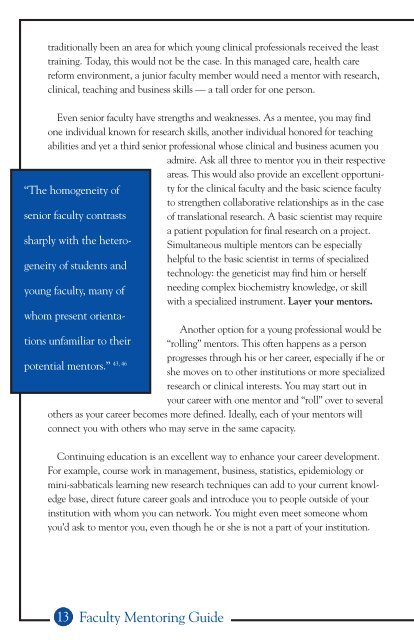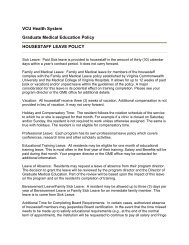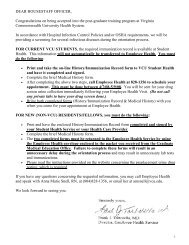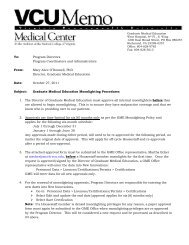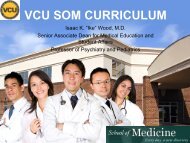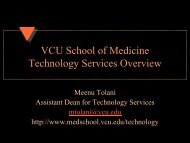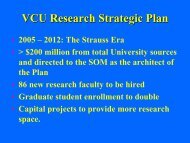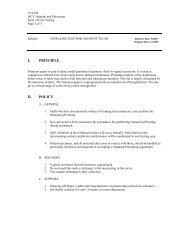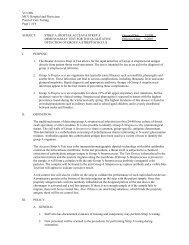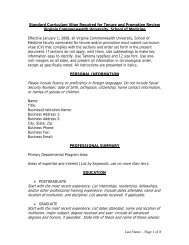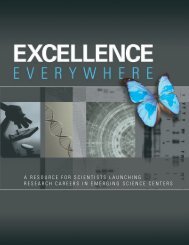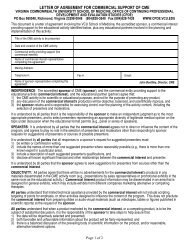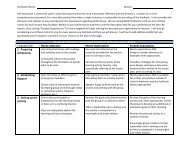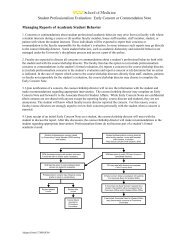Faculty Mentoring Guide - Virginia Commonwealth University ...
Faculty Mentoring Guide - Virginia Commonwealth University ...
Faculty Mentoring Guide - Virginia Commonwealth University ...
You also want an ePaper? Increase the reach of your titles
YUMPU automatically turns print PDFs into web optimized ePapers that Google loves.
traditionally been an area for which young clinical professionals received the least<br />
training. Today, this would not be the case. In this managed care, health care<br />
reform environment, a junior faculty member would need a mentor with research,<br />
clinical, teaching and business skills — a tall order for one person.<br />
Even senior faculty have strengths and weaknesses. As a mentee, you may find<br />
one individual known for research skills, another individual honored for teaching<br />
abilities and yet a third senior professional whose clinical and business acumen you<br />
admire. Ask all three to mentor you in their respective<br />
areas. This would also provide an excellent opportunity<br />
for the clinical faculty and the basic science faculty<br />
“The homogeneity of<br />
to strengthen collaborative relationships as in the case<br />
senior faculty contrasts of translational research. A basic scientist may require<br />
a patient population for final research on a project.<br />
sharply with the heterogeneity<br />
of students and<br />
Simultaneous multiple mentors can be especially<br />
helpful to the basic scientist in terms of specialized<br />
technology: the geneticist may find him or herself<br />
young faculty, many of needing complex biochemistry knowledge, or skill<br />
with a specialized instrument. Layer your mentors.<br />
whom present orientations<br />
unfamiliar to their “rolling” mentors. This often happens as a person<br />
Another option for a young professional would be<br />
progresses through his or her career, especially if he or<br />
43, 46<br />
potential mentors.”<br />
she moves on to other institutions or more specialized<br />
research or clinical interests. You may start out in<br />
your career with one mentor and “roll” over to several<br />
others as your career becomes more defined. Ideally, each of your mentors will<br />
connect you with others who may serve in the same capacity.<br />
Continuing education is an excellent way to enhance your career development.<br />
For example, course work in management, business, statistics, epidemiology or<br />
mini-sabbaticals learning new research techniques can add to your current knowledge<br />
base, direct future career goals and introduce you to people outside of your<br />
institution with whom you can network. You might even meet someone whom<br />
you’d ask to mentor you, even though he or she is not a part of your institution.<br />
13<br />
<strong>Faculty</strong> <strong>Mentoring</strong> <strong>Guide</strong>


